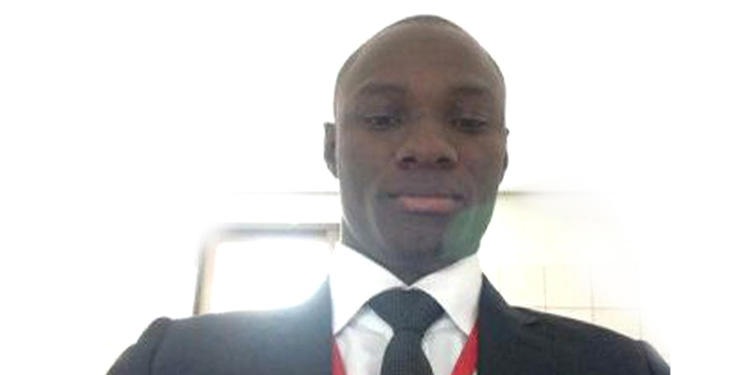Abuja, January 14, 2022 — Nigerian authorities should immediately halt attempts to obtain confidential sources from the privately owned Peoples Gazette news website and allow its journalists to work without intimidation, the Committee to Protect Journalists said today.
At around 1 p.m. on January 10, four officers of Nigeria’s National Intelligence Agency (NIA) entered the Peoples Gazette office in Utako, a district within Nigeria’s capital Abuja, ignored the security guard’s attempts to stop them, and searched for the website’s managing editor, Samuel Ogundipe, and reporter Hillary Essien, according to a Peoples Gazette report from that day and Ogundipe who spoke to CPJ by phone. Neither Ogundipe nor Essien were in the office, and the officers left shortly after, according to the report.
The officers brought a letter signed by someone named Armstrong Machunga, which did not disclose who Machunga is or their role, only that he was writing on behalf of the NIA’s director general, Ahmed Abubakar Rufai, demanding that the Peoples Gazette produce the name of several unnamed sources who signed a letter that was central to a December 22, 2021, news report that alleged Rufai was not qualified to head the agency, according to Ogundipe and the letter, which CPJ reviewed.
“Nigerian intelligence’s brazen efforts to identify sources for Peoples Gazette’s reporting fit a pattern of disrespect for journalists’ rights to protect those that give them information,” said Angela Quintal, CPJ’s Africa program coordinator, from New York. “Source protection is a critical condition for press freedom, and Nigerian authorities should stop trying to force journalists to disclose their sources.”
In its letter to Peoples Gazette, the NIA accused the publication of failing to consult the agency before publishing the December 2021 news report, which was based on an internal letter dated December 16, 2021, and leaked to the news site by unnamed NIA directors, alleging that Rufai had failed promotional exams in 2012 resulting in his forced retirement from the agency at the time, according to the same Peoples Gazette report and the agency’s letter. The report was one of a three–part series.
The NIA also accused the Peoples Gazette of spreading “falsehood” in the December 2021 publication, describing the leaked December 16 letter that the report was based on as a fabricated document.
If Peoples Gazette did not reveal their sources, the NIA threatened the “activation of other options to seek redress,” in its January 10, 2022, letter, adding that the proposed disclosure of the sources would “set the stage for engagement and resolution of the damage caused to the image of the Director General of the NIA and the organization” by the Peoples Gazette report.
Ogundipe and Essien told CPJ that the Peoples Gazette tried to reach NIA spokesperson Abubakar Jidda before publication without success, but spoke with a presidential spokesperson, Garba Shehu, who said that the matter between the directors and Rufai had been resolved. These efforts and Shehu’s response were included in the January 10 report.
Reached by phone on January 13, Shehu asked to be contacted via messaging app; CPJ sent him written questions but received no response. Similarly, when CPJ reached the spokesperson for Nigeria’s National Security Adviser, Zakari Usman, by phone he asked to be contacted via messaging app and said he would call back. CPJ sent questions but received no further contact from Usman. CPJ’s calls to NIA spokesperson Abubakar Jidda either rang unanswered or did not connect.
In January 2021, mobile internet service providers operating in Nigeria – India-based Airtel, South Africa-based MTN, Nigeria-based 9mobile, and Glo, which is owned by local company Globacom – blocked the privately owned Peoples Gazette in Nigeria, as CPJ reported at the time.
